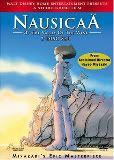An interesting argument I heard against the globalization of languages was that because people will begin speaking English (or another super language), they will slowly lose their native tongues, thus losing a way humans can think (structure, grammar, also indirect vs direct ways of approaching subjects). There are so many different ways for languages to be put together that it is a shame to lose them because it is more convenient to speak another. There is also a theory that English evolved from a Creole of German and French among some linguists, so it will be interesting to see 1000 years how much the languages of today have changed as a a result of contact with others. Just a few examples of other languages mixed into American English are Japanese and Spanish. American English has also influenced Japanese and Spanish. Chicano Spanish has words that speakers from Spain would not be able to understand, and some speakers do not even realize that the words they know are actually not "Spanish" but come from American English.
Also, quick touch on the Asian market in America (only going to refer to Asian since that's the music I'm familiar with). Many people seem to prefer to be able to understand the music they listen to. In order for Asian singers then to do well in America, they must be able to sing in English. However, the intonations of Asian languages can be very different from American English, so when they switch to English, it does not fit in as well with the melody/background music. How the words and the pronunciations sound, along with the syllable differences (ex: Chinese for the most part=one character/syllable, one meaning), can really affect how a song will turn out. I think this is why when singers do perform English versions of their songs, they don't go with direct translations because something about it sounds off, or vice versa, as some American groups have done covers to Asian songs (ex: Michael Learns to Rock - Take Me To Your Heart). This means they may end up losing some of the meaning in their songs. The lyrics may carry similar themes, but translation-wise.. eh. Songs from animes are also good examples, as some have been translated and performed in English, with very different lyrics (Change the World from Inu-Yasha). Adjustments usually have to be made in order for it to sound like the original.

My friend and I were also talking about Miyazaki films today, and it turns out that one of them, Nausicca of the Valley of the Wind, was heavily edited and cut when it was first distributed in America (1984), completely changing the meaning and environmental issues the original film was trying to get across. How America censors (or wants certain issues to be promoted more than others) is different than other countries, so that may also affect how artists may get promoted here. How what they may feel should and can be shown in a music video may be very different from what we think should be shown or is appropriate.
So yeah.. could be completely off as I'm not a performer in Asia faced with those decisions, but that's what it seems like from my experiences with Asian music.

No comments:
Post a Comment